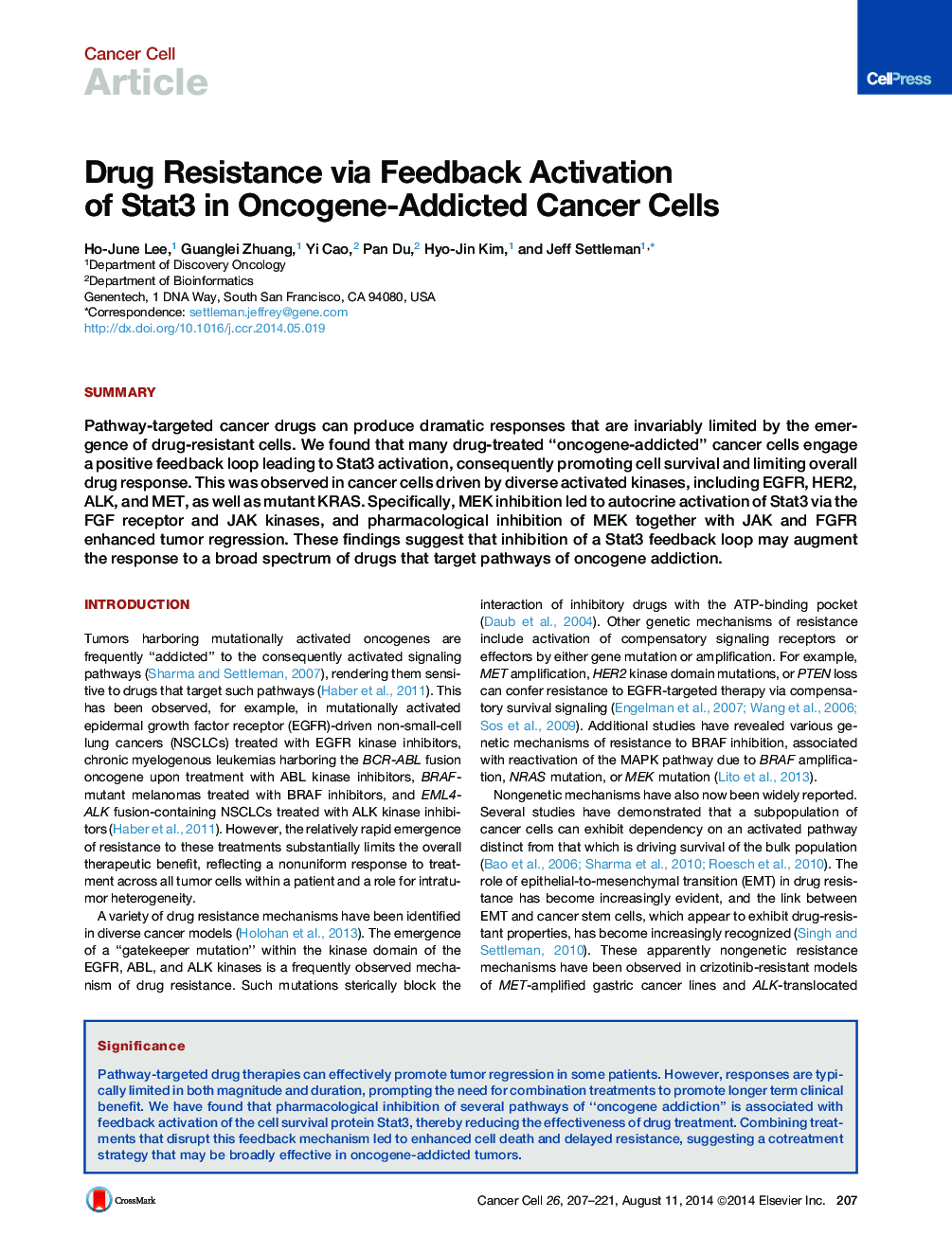| Article ID | Journal | Published Year | Pages | File Type |
|---|---|---|---|---|
| 2107091 | Cancer Cell | 2014 | 15 Pages |
•Many oncogene-addicted cancer cells initially respond well to pathway-targeted drugs•Multiple resistance mechanisms limit the overall efficacy of most cancer drugs•A Stat3-mediated feedback loop engaged by drug treatment contributes to resistance•Disrupting Stat3 feedback enhances drug efficacy in many oncogene-addicted cells
SummaryPathway-targeted cancer drugs can produce dramatic responses that are invariably limited by the emergence of drug-resistant cells. We found that many drug-treated “oncogene-addicted” cancer cells engage a positive feedback loop leading to Stat3 activation, consequently promoting cell survival and limiting overall drug response. This was observed in cancer cells driven by diverse activated kinases, including EGFR, HER2, ALK, and MET, as well as mutant KRAS. Specifically, MEK inhibition led to autocrine activation of Stat3 via the FGF receptor and JAK kinases, and pharmacological inhibition of MEK together with JAK and FGFR enhanced tumor regression. These findings suggest that inhibition of a Stat3 feedback loop may augment the response to a broad spectrum of drugs that target pathways of oncogene addiction.
